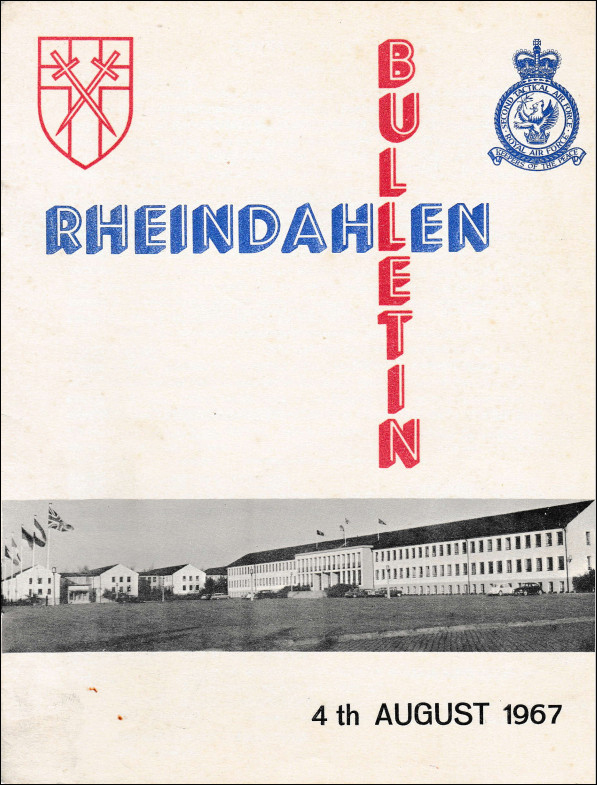Krefeld. And Strange Eyed Constellations Reign
At the junction of Kempener Allee and Ottostrasse, steeped in the nausea of some parallel life at my elbow, grey, anonymous, I am learning that there are debts to be settled on the other side of the membrane for crimes I didn’t know I’d committed, with their own dark arcana, completely different from the ones I’m familiar with and have been paying for until now. I step across. There’s a door with a row of bells, a name beside each bell, one of which is mine. I didn’t ask for this, I think, to be born here, reborn.
“But I can’t live here,” I say out loud, then notice a dark girl in a long coat waiting for the tram, her small fingers tapping away on her phone. Syrian, perhaps. She glances up and smiles. “Unless,” I think, “it is with you.”
⠀⠀⠀⠀⠀⠀⠀⠀⠀
And Death fell with me, like a deepening moan.
And He, picking a manner of worm, which half had hid
Its bruises in the earth, but crawled no further,
Showed me its feet, the feet of many men,
And the fresh-severed head of it, my head.
I was born in this hospital. Seven years later on a return trip, I was admitted for an extended period and operated on for some mystery illness, the pathology of which is still murky. My memory of the time is not coloured in the least by being unwell; in fact I recall it all through the prism of rude health; ward life, the smirking, sexy attention of nurses dressed like Florence Nightingale, cafeteria dinners, pyjamas from the charity closet. Always a flimsy place, fashioned of wood and tar-paper, redolent of a holiday camp, this field hospital was never meant to plod on for decades, but simply, in Proustian terms, to house me. If I had died in one of its blue-tiled theatres (which by all accounts was a possibility) it might have vanished into the ether like Brigadoon. Now it’s a scattered ruin. Decades of immigrants have penetrated its fences and occupied it briefly, like characters from The Road. Their children’s schoolroom graffiti speaks to relief and an innocence of purpose. But now, in keeping with the dark mood of the times, it is empty. Better, it seems, for the place to crumble than to afford shelter. Their ghostly chatter, in unfamiliar tongues, mingles with echoes of my own sickly coming of age; it’s like your cells remember joy in some mitochondrial way and spend a lifetime aching to feel it again. Almost Pavlovian, when the guard heard my story and quietly undid the chain, something in me began to drool.
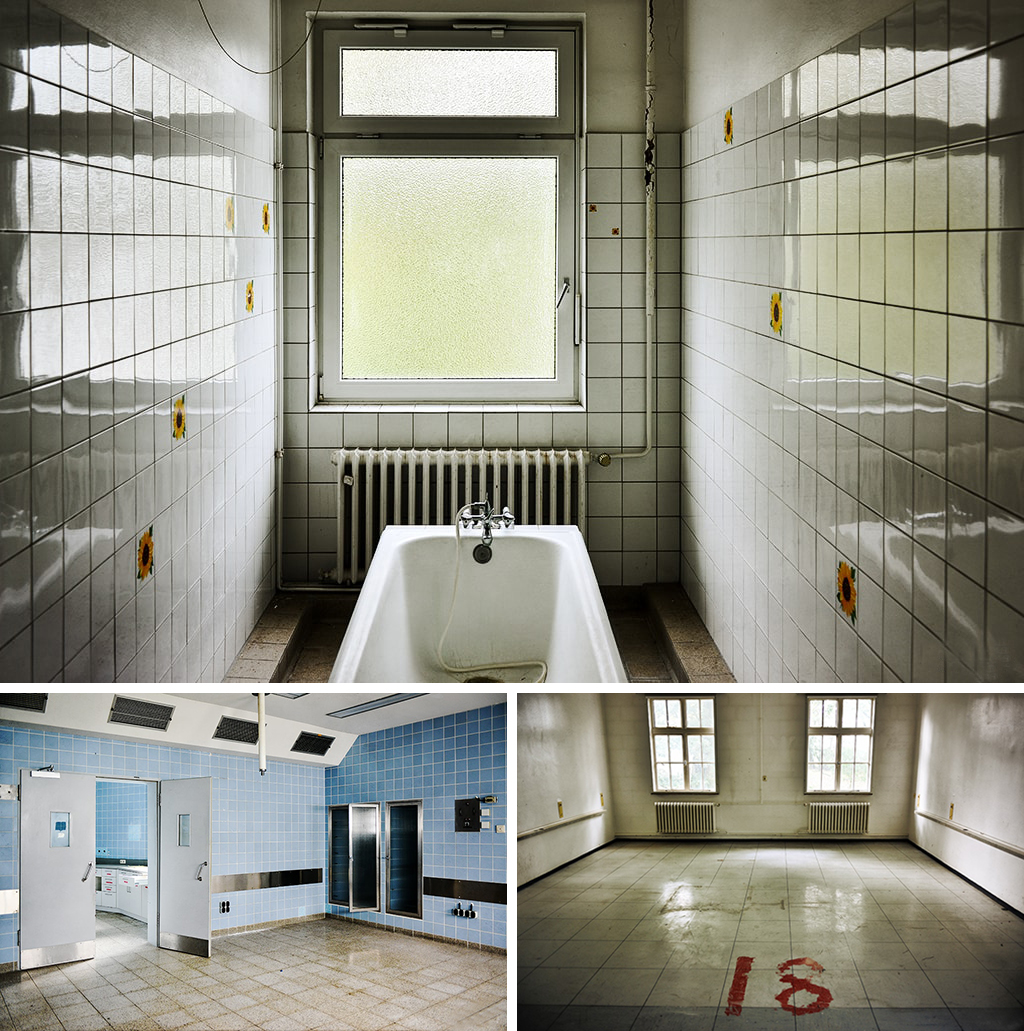
Afterwards, between vast abandoned military camps the size of towns, I stumbled upon Rhinedahlen Cemetery. Row upon row of identical headstones in the familiar style of Commonwealth War Graves from the Somme to Salonika. Men who hailed from small towns in sad shires, but died here and whose bones persist, far from home, beneath this scrap of meadow, some corner of a foreign field that is forever England. Then suddenly, like a slap, the same stones, the same regimented poignancy, but now bearing the names of children. Emlyn, son of L. Cpl. and Mrs. A Smalldon, aged 1 day. Richard Alexander Austen, beloved son of Sgt. and Mrs. J.A. Austen, lived only a few hours. Babies of young soldiers and their wives, born at the little hospital, who didn’t make it. Matthew Dugald James, son of Matthew and Aileen Paterson, born and died 7th September. How can you stand it? How do you go on? Just out of school, sent over to man the empty trenches of your dad’s war, an outpost of the empire slipping sideways into redundancy, still huffing the embers of colonial glamour; bingo at the NAAFI, dances at the corporal’s mess in red tuxedos. But better this than the pork pie factory, the coal mine. A beginning, steeped in hope; as handsome as he’d ever be and she as pretty. And soon they were married, she was pregnant, and then this. It’s unbearable.
You can’t leave. You just walk up and down staring at the little names in stone, a hundred exploding tragedies, derailed at this plaintive nowhere. Many of the graves are still visited. Lives that might have spanned minutes, elongated through an unconscious day by knots of tubes and the fever of love. Just enough time to say hello and goodbye. Matchsticks that flared for a moment and were gone. Yet still they come, the hollowed parents and, by now, the brothers and sisters they never knew. It’s so small, this thing, yet spans an eternity. It makes your chest thicken; you cannot step away until you’ve read all the words on all the stones and the sun is going down and you won’t make it back in time for dinner. But anything less would be a shrug of convenience, a betrayal of your children and your own near death. Not once but twice. And I’d have been here too. Julian Mark, son of Sgt John and Molly Richards, brother of Simon. I can’t think of a kinder place, nor better company.
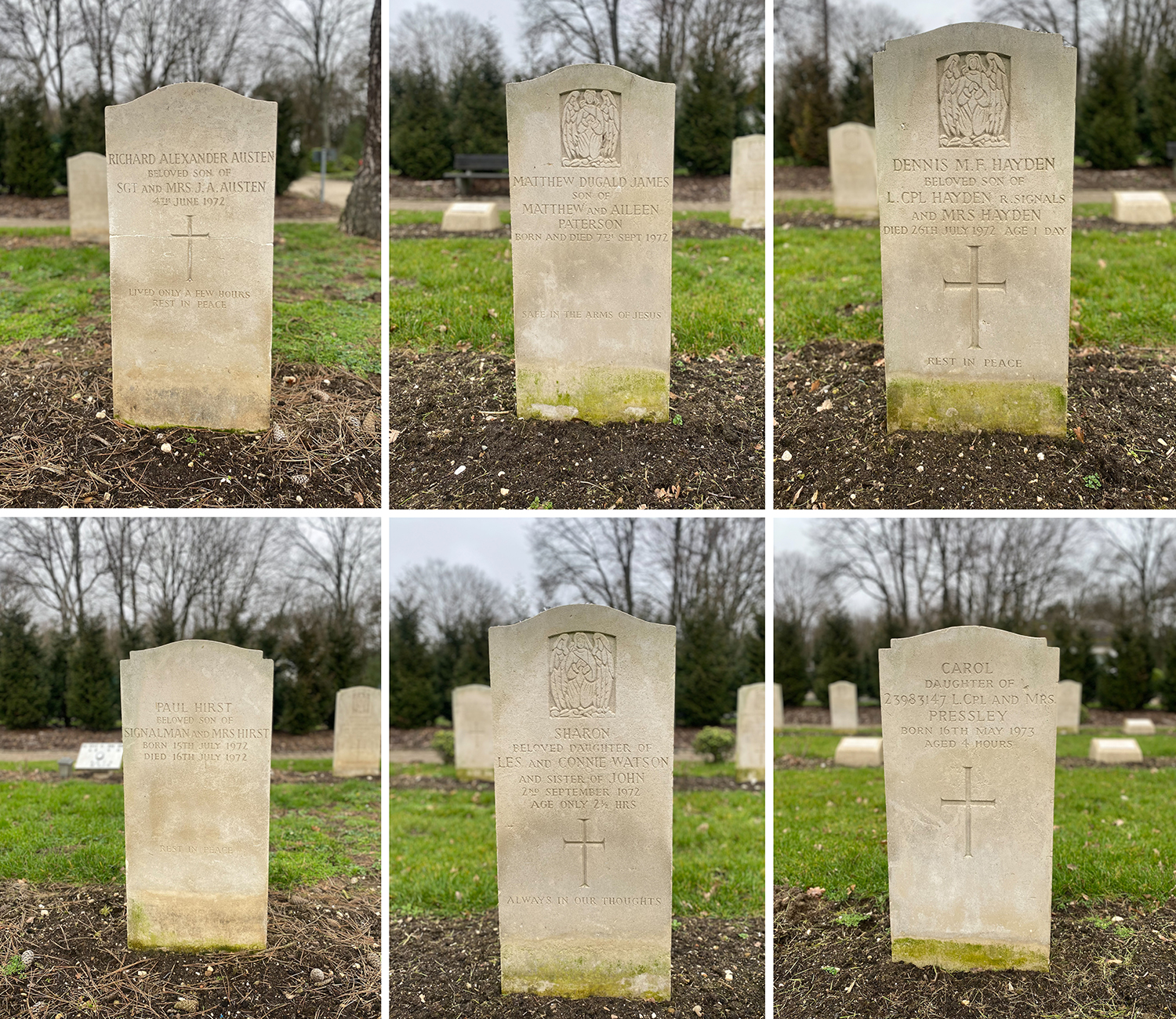
On my way out my dad texts, I tell him where I am and about the dead kids and without missing a beat he says he was lead pallbearer there in 1962 for his friend, Sid Best, had organized a raffle and sold Sid’s car to raise money for his new wife, who was french. Sid had been on honeymoon in Italy and dropped dead from a heart attack in the bath. They shipped him back and buried him with miltary honours. I’m already half way to the car, but it’s too good a lightning strike not to investigate; a lucid memory-bubble in the mind of a 90 year-old man, unloosed by his son tramping around a field sixty years and a thousand miles in the past. It takes a while, and I’m close to giving up when I find him. Corporal S. Best, Royal Corps of Signals, 26th June 1962. A year before I was born. Beloved husband of Amelie. Sid had no kids, there hadn’t been time. Amelie would have gone home, back to France on a widow’s pension. My dad was right. I’m probably the first person to gaze at his headstone in more than half a century. I pick a daffodil from somebody else’s grave, give it to Sid, stuff it deep into the earth that cradles him, and send a picture to John, stranded at his own end of days like a beetle in his armchair.
And after a while: “Thanks, Son, that was a kind thing to do. He was a nice bloke.”
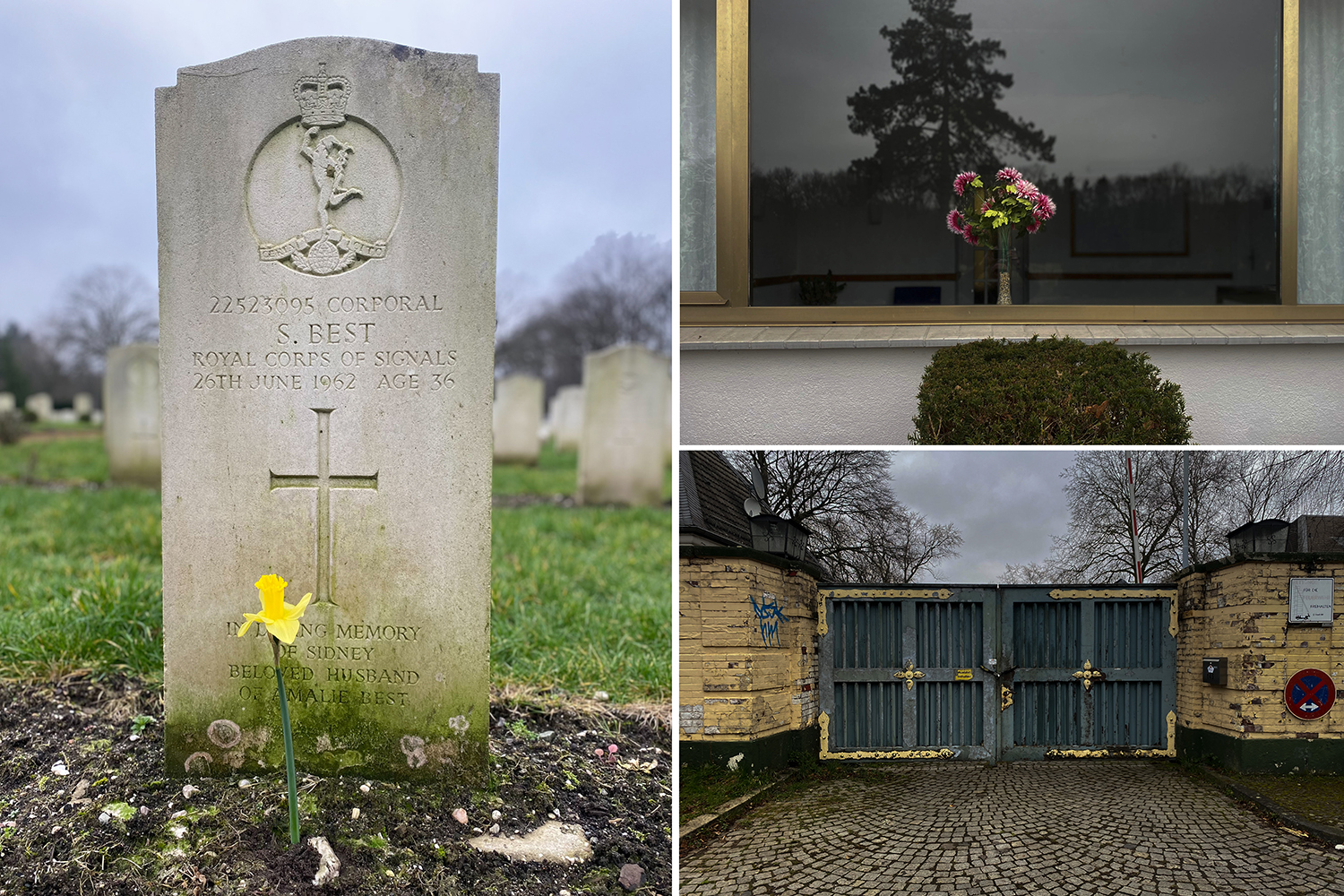
Krefeld is the first place I have detailed childhood memories of. I have snapshots of the places before; Aden, Gloucester, Poole, Blandford, but Krefeld, and specifically this island block of flats, is where everything coalesces into granular detail. We were here on a three-year posting, my dad stationed at Francisca Barracks, although we lived in army flats in a quiet neighborhood, walking distance to Bradbury Barracks where my mum worked in the medical center. It’s a nothing place, a small drab city, smaller and drabber than several others necklaced along the Rhine in Westphalia. It’s also the last place we lived as a family, my brother Simon heading off to school a few months later, only home on holidays. I loved it. I’ve thought about it more in fifty years than any of my myriad other homes. My dad, ninety, unsleeping, does the same. Yet I’ve never been back. It’s nowhere. There are so many other places. And who would I bring? Simon died at school four years later. I got off the train for the first time in fifty years, crossed the street, turned back, and saw his name illuminated above the station. There are more things in heaven and earth, Horatio, than are dreamt of in your philosophy.
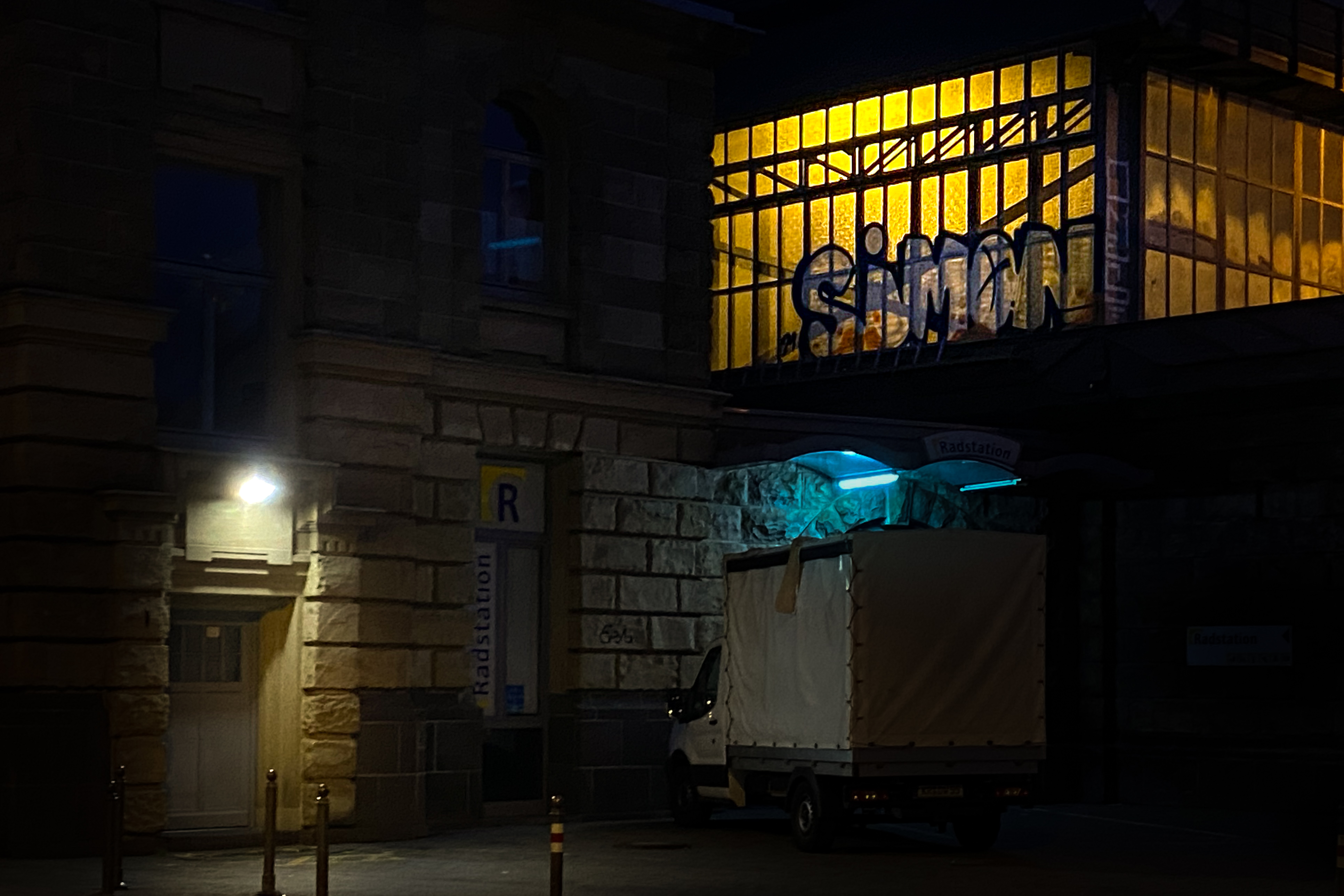
•••
